Apple, well done on your billions. Now end this white cable hell, please
- Published
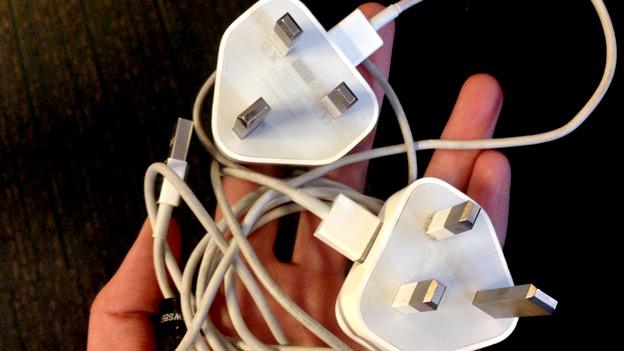
Familiar? White cables in every bag, drawer and pocket are an annoying necessity for lots of us. So will Apple be spending some of its cash on longer-lasting batteries?
More than 74 million people bought an iPhone in the run-up to Christmas, helping Apple post the biggest quarterly profit ever made by a public company... that's nearly £12bn.
Some of those millions spend quite a lot of time carting around white cables and eyeing up free plug sockets in coffee shops.
You only need to do a quick search to find hundreds of posts about smartphone battery life - or the lack of it. So will Apple be spending some of its cash pile of $142bn on better batteries?
As it stands smartphones are operated by lithium-ion batteries, which have actually been around for years. They are the best at producing the most energy in the smallest form - at a reasonable price.
In 2014 a number of industry magazines did their own research and found that the iPhone had lower battery life than most other handsets released that year.
Samsung even made an advert to rub salt in Apple's wounds - showing iPhone users lined up in an airport fighting over plugs and phone chargers to make sure their handsets didn't give them this depressing sight...

Ah yes, the spinning wheel of death
The race has been on for a while to find alternatives but battery technology is notoriously slow moving.
Stuart Miles, founder of gadget website pocket-lint.com, says part of the problem is how much we ask of our phones.
He told Newsbeat: "Phones used to make calls, send text and occasionally take pictures. Now it's not only the gateway to the internet, but a remote control for a TV, it can control heating.
"If you're using your phone more, and charging it more, there's only so much the battery can take."
Tech expert Maddie Moates agrees it's difficult for phone manufacturers to keep up.
"With lithium ion batteries, you get more power the bigger the battery, but we also want our smartphones to be slim and petite.
"How do you find the balance between a battery that will give you lots of power and last a long time and a phone you can fit in your back pocket?"
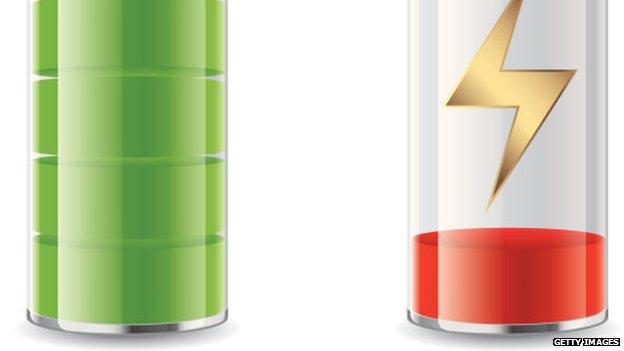
So for now we're stuck with what we've got.
The temptation is to charge your phone as often as you can, perhaps plugging it in overnight, just to make sure it's always full of juice.
But Stuart Miles says that can do more harm than good.
"Batteries have a number of life cycles. The more you charge the battery, the more you use those lives up," he explained.
"So if you charge it a lot, leaving it for way longer than you're supposed to, it eventually has a knock-on effect and it doesn't work as well as it used to."
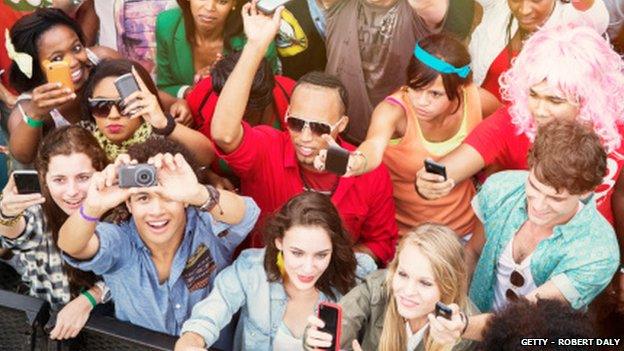
Solar and wi-fi charging
There is some hope in that we know Apple's engineers are trying to build a smarter battery.
According to reports the firm is looking into solar charging and ways in which phones can pull energy from the air.
Other options could see phones powered through TV, cellular or wi-fi signals.
Maddie Moate says this kind of wireless charging is close.
"They create charging stations that work in the same way as wi-fi so your phone can collect battery as you travel around from wi-fi like charging stations, even coffee shops putting them in middle of their tables."
Market analyst Ben Wood says companies are trying to engineer their way around the problem.
He says one company has been trying to develop a screen that is brighter, but uses less battery while another is looking to make smaller, more efficient chips for inside the handset.
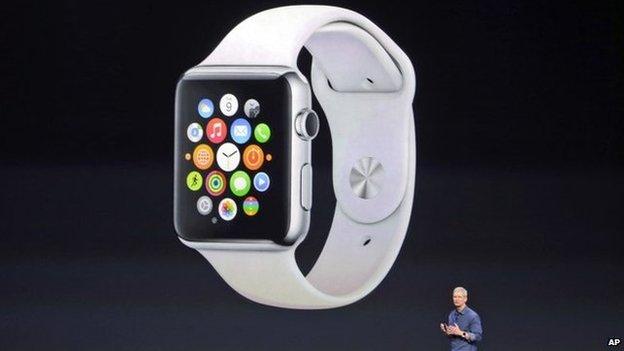
He adds that all eyes will be on Apple as it prepares to launch its smartwatch.
"The signs are that the battery as is won't last long and so they will have to find ways to charge it wirelessly.
"Perhaps by placing it on a stand instead of plugging it in.
"Whoever can solve the battery issue is going to win a lot of customers," says Stuart Miles.
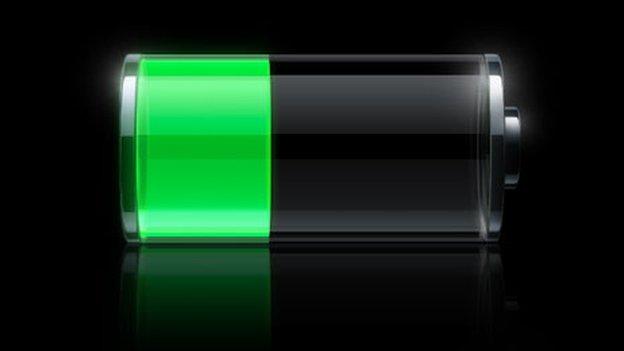
Tips to save your battery
Try to avoid charging it overnight and only plug in for a couple of hours a day
Charge it from the plug rather than a computer - if you do charge it from a computer, make sure you leave the phone switched on
Reduce the screen brightness
Turn vibration off
Turn location services off, especially if you are in an area of bad signal
In low-signal zones, keep your phone on wi-fi and turn to flight mode
Follow @BBCNewsbeat, external on Twitter, BBCNewsbeat, external on Instagram and Radio1Newsbeat, external on YouTube